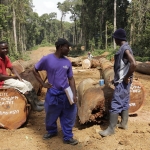US: Engineer: DuPont hid facts about paper coating
A former engineer for the DuPont company has accused his ex-employer of
concealing test results almost two decades ago that showed toxic
chemicals leaching out of a paper coating used to give grease
resistance to microwave popcorn bags, fast food and candy wrappers, and
pizza box liners.
The statements Wednesday by chemical engineer Glenn Evers come a week before the Environmental Protection Agency is expected to announce what fines it will levy against DuPont for withholding information about tests involving a similar chemical used in making non-stick coatings.
When ingested, these chemicals break down into perfluorooctanoic acid (PFOA), a chemical that an EPA expert panel this year found to be a likely human carcinogen. PFOA has been found in the blood of more than 95% of Americans, several studies have shows.
At a briefing arranged by the watchdog Environmental Working Group, Evers said that in 1987, DuPont scientists were testing two potential products to see how much perfluorinated chemical leaches out when they are exposed to water and heat, as they are when used to wrap hot foods.
The scientists used the company's widely used Zonyl RP grease-resistant coating as a benchmark because it was supposed to leach out the chemicals at a rate of 0.2 parts per million or less. But when the tests results came back, Evers said, they showed that the popular product leached out at 0.62 parts per million, three times the amount allowed by the Food and Drug Administration.
The two products tested were never put on the market for unrelated reasons, but Zonyl RP is still in use.
"People were shocked," Evers said, calling it an "Oh, my God" finding. But when he tried to tell company executives that they had to notify the FDA, he was told they were working on it, he says.
Neither customers nor the FDA were ever alerted, he says.
Evers lost his job at DuPont in 2002 due to a restructuring. He has since worked as a consultant to the paper industry. He says he came forward because "my personal convictions do not allow me to not tell what I know. I've thought and prayed hard about this."
Evers' appearance and internal company documents sent to government agencies by the Environmental Working Group (EWG) comes days before the EPA is expected to announce the amount of fines it will levy against Delaware-based DuPont for failing to report the results of tests that found PFOA in umbilical cord blood taken from the children of employees. The maximum possible fine is $313 million.
In a statement, DuPont said "Allegations that food-contact paper made with DuPont materials contain unsafe levels of PFOA (C8) are false."
EWG staff toxicologist Tim Kropp agrees that there is no PFOA in the treated paper. It's only after the perfluorinated chemical is ingested that it breaks down into PFOA in the body, he said.
DuPont said its products are safe and that it "has always complied with all FDA regulations and standards regarding these products."
- 181 Food and Agriculture
- 182 Health



